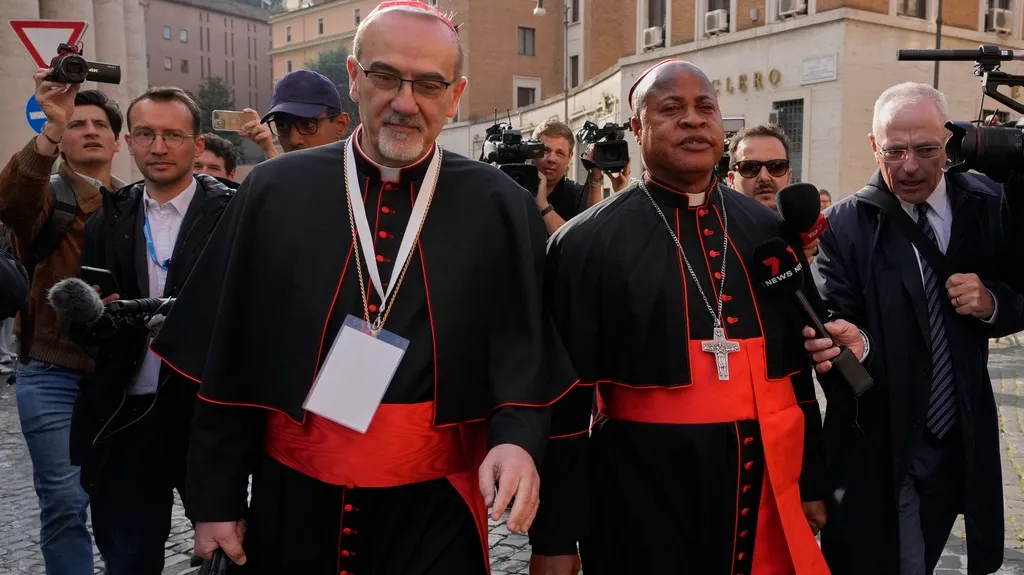March 6, 2013
Judge Taking a Look at Mich. Gay Marriage Ban
Jason St. Amand READ TIME: 4 MIN.
A lesbian couple's desire to adopt each other's children has grown into a potentially groundbreaking challenge to Michigan's ban on same-sex marriage.
Two Detroit-area nurses filed a lawsuit to try to overturn restrictions on adoption by same-sex partners. But at the judge's invitation, the case took an extraordinary turn and now will test the legality of a 2004 constitutional amendment that stipulates Michigan only recognizes marriages between a man and a woman.
U.S. District Judge Bernard Friedman will hear arguments in the case Thursday at a Detroit law school, although he hasn't indicated when he'll make a ruling. If he concludes the amendment violates the U.S. Constitution, gay-marriage supporters say same-sex couples would immediately be allowed to wed and adopt children.
State officials, however, predict "potential legal chaos" if the judge throws out the gay marriage ban.
"This is not the road we thought we'd go down," Jayne Rowse, 48, said in an interview this week. "We thought Judge Friedman would rule one way or the other on second-parent adoption. No one anticipated this. It was out of left field."
Her partner, April DeBoer, 41, said the lawsuit was filed because they wanted to protect their three children.
"I know we're taking on a bigger issue with same-sex marriage," she said.
Rowse and DeBoer of Hazel Park have lived together for more than six years. They share their home with Nolan, 4, and Jacob, 3, and a girl, Ryanne, 3, children who couldn't be raised by their birth parents.
Rowse adopted the boys, and DeBoer adopted Ryanne. But under Michigan law, they can't adopt each other's kids because they aren't married. If either woman died, the other would not be instantly recognized as the legal parent of the remaining children, even if instructions were spelled out in a will.
"It could be contested, just like anything in a will. If one of my family members said, 'I want the kids,' a judge could say, 'This is family. She's not,'" Rowse said, referring to DeBoer.
"One of our big concerns is they consider themselves siblings," Rowse said of the children. "They could be separated. That's not fair to them. They're brothers and sister."
At least 16 states and the District of Columbia allow same-sex couples to jointly adopt children, according to Human Rights Campaign, a gay rights group.
During a court hearing in August, the judge suddenly changed the case - and raised the stakes - when he said Rowse and DeBoer should consider challenging Michigan's ban on gay marriage, which was approved by 58 percent of voters nearly a decade ago. So they expanded their lawsuit to claim the prohibition violates the U.S. Constitution's Equal Protection Clause because it treats same-sex couples differently than heterosexual married couples.
Friedman will hear arguments on the state's request to dismiss the lawsuit. In a court filing, the Michigan attorney general's office said there's no "fundamental right to same-sex marriage."
"Michigan's marriage amendment bears a reasonable relation to legitimate state interests," the state said. "Michigan supports natural procreation and recognizes that children benefit from being raised by parents of each sex who can then serve as role models of the sexes both individually and together in matrimony. Plaintiffs fail to allege facts showing there is no rational basis for these legitimate state interests."
No matter what Friedman decides, the fate of Michigan's gay marriage ban could be influenced by the U.S. Supreme Court. The court later this month will hear arguments on California's ban on same-sex marriage, a case that could have ripples elsewhere.
The Michigan case hasn't received much attention. The American Civil Liberties Union got the judge's approval to file a brief in support of Rowse and DeBoer, but it mostly focuses on the adoption issue. There were no requests by groups urging the judge to leave the gay marriage ban alone.
Jack Hoogendyk of Kalamazoo County, a former state lawmaker who supported the 2004 amendment, said he remains in favor but believes the gay marriage ban "might barely pass today" or even be defeated by voters.
"A good moral culture starts with the family, and an ideal family unit is two parents - a father and a mother," Hoogendyk said. "It's good public policy to uphold that ideal."


